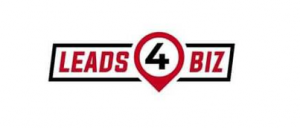
Why do I need a coach?
A coaching relationship between a coach and the client is a very special one of trust and respect. The coaching relationship is one in which the coach is there to help the client get from where they are (point A), to where they want to be (point B). That is to say, the client has a goal or objective they want to achieve and the coach is there to assist the client to get there. The coach is not there to tell the client what to do, as much as to guide the client in realising themselves what the right solution is for them. This is achieved as the NLP Coach creates and facilitates change, elicits, selects, trains, asks meaningful questions, motivates, creates insight, explains, tasks, evokes, challenges, stimulates, supports and encourages client’s self-expression.
That being said, the coach does not do all the work for the client, the coach helps the client through verbal and non-verbal communications to realise the potential they already have within themselves to achieve their goals or objectives. Whatever resources and skills the client needs to acquire and steps to take to get there is also part of the journey for the client’s own personal development. Together the coach and the client will decide on what path to take to best equip the client in achieving their set outcome.
When the Olympic athlete stands on the podium to receive their medal, the coach has helped the athlete to get there, but it is the athlete who actually did the training and ran the race to completion. When Sir Richard Branson sits at night and drinks a very expensive glass of his favourite tipple, it was a coach that helped him to realise what the right direction may have been to make a successful business and a lot of money, but it was Sir Richard that actually made the decision and took the reins to make the business a success. The coach helps the client to make the right decision for themselves.
Utilizing the NLP, Timeline Therapy® and Hypnosis in coaching further enhances the relationship, as very often there are barriers and reasons why the client has not already achieved their goal. So the skills that form part of these learning’s, help the client to let go of limiting beliefs, limiting decisions, fears and other presenting “problems” that they may have holding them back. It may sound crazy, but people can have fear, both of failure as well as fear of succeeding. “What will my family or friends think if I become successful? Will they still want to be my friends? Will my family think I have risen above my station?” This and much more can be dealt with utilizing these additional skills that the coach should have, to help the client realise their full potential.
To better understand what coaching is, we need to say what coaching is and what it is not.
Coaching is not traditional therapy, which asks questions of “why and reasons for not having succeeded yet.”
Coaching asks questions of “How, What do you need to learn or get to succeed.”
Coaching is not consulting where the consultant gives the client all the answers or possibly even completes the task for the client.
Coaching is about helping the client to understand and know what they need to do. Ever heard the story of give a man a fish and feed them for a day, teach the man to fish and feed him for a lifetime?
Coaching is not mentoring. A mentor will typically have “sage” advice to give to the client from the wisdom they have gathered in that particular field or area of life. Again this is different to coaching as a coach does not actually give the client the answer, as much as help the client to find the answer.
There are many other forms of “therapy” or interventions” to which coaching is different. Too many to mention and go over in this particular article.
Depending on the client, the coaching relationship could be short to medium term. E.g. a client who wants some personal performance coaching to help them stand up in front of a wedding party to do a speech, would take much less time than a business client who is looking to take their business in a whole new direction. Typically though, unless for specific cases, a coaching relationship should never exceed 18 months, as the client must not become dependent on the coach. Instead a good coach will help the client and then the client will be able to go and do what they have set out to achieve. The client may however take the coach on again in the future for a different project or change that they want to implement.
So why do you need a coach? That is a question only you should answer. Do you want to achieve more, or be more than you are? Do you want to be free of whatever is holding you back? Do you need to stand up in front of a crowd to deliver a speech or do you want to grow your business? Maybe you just don’t have the confidence to go out and do what you have always wanted to. If coaching is good enough for Richard Branson, Olympic athletes and presidents, then it is good enough for everyone.
Carpe diem. Seize the day.
Wayne Farrell
Wayne Farrell has been in and around sales and business for over 20 years, including a Business Networking organisation in North West England. Here Wayne brought companies together and assisted them in growing. He is now a Master Practitioner and Trainer of Coaching, NLP, Timeline Therapy® and Hypnosis.
Wayne is now in South Africa March 14



